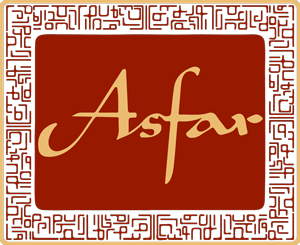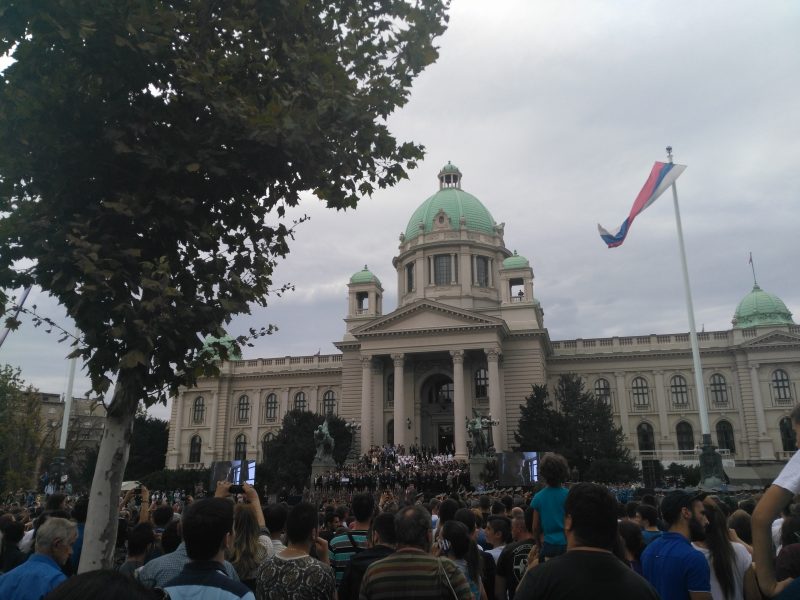The Balkan region has experienced an immense amount of change in the last three decades, with borders that have shifted and ethnic disparities distributed throughout different countries. But to the naked eye, it can seem to the outsider that the borders and countries are stable, with ethnic tensions being a mere question of the past. Thus, it can be easy to forget the events of the Yugoslav wars that destabilised the region and gave way to xenophobic massacres and mass ethnic cleansing. However, ethnic attacks such as the displacement of jobs of ethnic Albanians and Kosovans and other xenophobic aggressions in Serbia can call in to question the supposed peace of the region. Though the treatment of many ethnic Kosovars and Albanians is now positive, some governmental operations have created mass strife between residents of both Kosovo and Serbia. In addition, the Serbian States’ refusal to recognise Kosovo as a now independent country has created issues in both countries. This can especially be seen in Mitrovica, which has a large Serbian population, and southern Serbia’s Presevo Valley, which holds a majority Albanian population. These two regions have fought extensively for equal rights for their residents. Though both regions have made adjustments to function multi-ethnically and some advancements have been made – such as education being administered in Albanian in the Presevo Valley and there also being health and education centres in Serbian in Mitrovica- the improvements have taken time and are still continuing.
I initially ended up in Serbia by accident. I had taken a flight to Romania and decided my trip there was too long, and so the next morning I went to the train station and took the first train out- headed to Belgrade. Before I had visited Serbia, all I had known about the country was about the Serbia- Kosovo conflict, and about how my Serbian and Albanian or Kosovan friends felt. Many felt like they shouldn’t speak to each other due to the collective consciousness of the human rights abuses that their elder generations had suffered, some hated each other passionately, whilst others, usually of younger age groups, seemed to not dislike each other and longed to make friendships. Personally, I was always curious about this, and my own experience of Belgrade was amazing. The beauty, history and general ambience of Belgrade is stunning, and the people were so friendly and helpful everywhere I went. I also saw a lot of the local culture, and incidentally arrived the day of a march in which Serbian soldiers were in the city. The city itself seemed to encourage many human rights causes, and I saw more than 3 peaceful marches during my stay. This, already, cast confusion in my mind; the city was so open and so different than anything I had imagined. However, having opened a map distributed by the tourist office in Serbia, I saw that Kosovo was shown as a part of the country, which was somewhat a shock to me. I also saw that in a museum cities that were in Bosnia, and Pristina (the capital city of Kosovo) were then branded as Serbian, which would, of course, create strife. These events during my stay stayed in my mind, and I felt they were important to think about.
In January 2017, the first direct train from Belgrade to Mitrovica since 2008 was stopped before it crossed the Kosovan border, after having been found to have ‘Kosovo is Serbia’ branded across the sides in circa 20 languages. The denial of Kosovo’s independence and the idea of using both countries’ ethnic minorities as pawns in a power- play between leaders seems to have created a large unrest between people who simply wish to live their lives. The echoes of this unrest can be felt even today in the Albanian diaspora, with many being pushed to feel negatively due to a state regime which aims to annexe or partition certain territories, but of which generally neither population agrees. An important point to consider is that Kosovars have now developed their own identities, away from a Yugoslav feeling or even a nationalistic or simple Albanian identity. Though many Kosovars still feel ethnically Albanian, they have also come to feel simply Kosovar, which is an important idea both states should possibly consider. In addition to this, many Serbians who may live in Kosovo may have also developed different ways of considering their ethnicity, away from all the political sentiments shared throughout the region.

